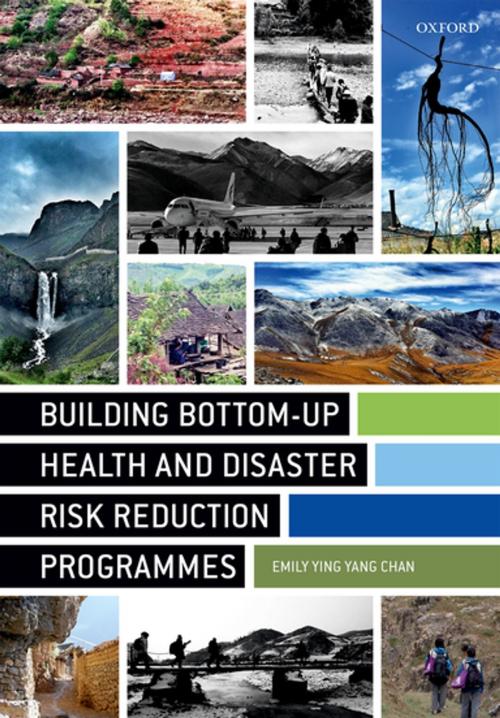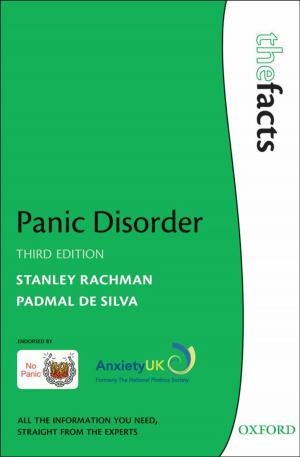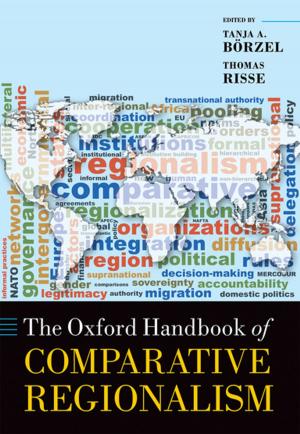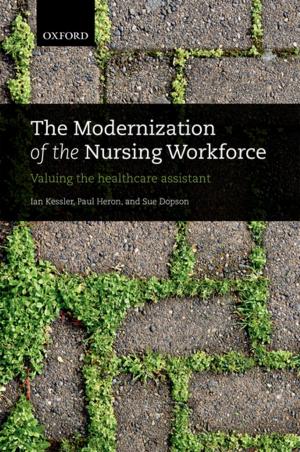Building Bottom-up Health and Disaster Risk Reduction Programmes
Nonfiction, Health & Well Being, Medical, Reference, Public Health, Science & Nature, Nature| Author: | Emily Ying Yang Chan | ISBN: | 9780192533975 |
| Publisher: | OUP Oxford | Publication: | December 8, 2017 |
| Imprint: | OUP Oxford | Language: | English |
| Author: | Emily Ying Yang Chan |
| ISBN: | 9780192533975 |
| Publisher: | OUP Oxford |
| Publication: | December 8, 2017 |
| Imprint: | OUP Oxford |
| Language: | English |
As a backdrop of the Sustainable Development Goals (SDGs) (2016-2030), the United Nations pointed out that more than 6 million children still died before the age of five by 2015. At least 1.8 billion people across the world still consumed fecally contaminated drinking water and 2.4 million lacked access to basic sanitation services such as toilets or latrines, while nearly 1,000 children died every day of preventable water and sanitation-related diarrhoeal diseases. Rural areas fare far worse: Children in rural areas are about 1.7 times more likely to die before their fifth birthday as those in urban areas. About 16 per cent of the rural population do not use improved drinking water sources, compared to 4 per cent of the urban population. About 50 per cent of people living in rural areas lack improved sanitation facilities, compared to only 18 per cent of people in urban areas. Far too many one-off rural on-site public health knowledge transfer projects fail to deliver results in the long run, and the knowledge in question cannot be retained in the rural communities after the NGO and development workers are gone. In addition to external constraints, this is often due to a lack of theoretical understanding among NGO practitioners and volunteers and basis for evaluation and improvement of health relief programmes. Based on public health theories and illustrated by relevant examples, this book introduces how health, emergency and disaster preparedness education programmes could be organised in remote rural Asia, which could become useful reference materials for organisers and volunteers of rural development projects. This book is an introductory to intermediate level textbook and reference book for healthcare professionals, fieldworkers, volunteers and students who are interested in promoting health and emergency and disaster risk reduction. The book is developed from the experience and insights gained from the long-established CCOUC Ethnic Minority Health Project in China. It also incorporates new lessons from CCOUC's recent projects in Asia countries like Bhutan, Nepal and Democratic People's Republic of Korea.
As a backdrop of the Sustainable Development Goals (SDGs) (2016-2030), the United Nations pointed out that more than 6 million children still died before the age of five by 2015. At least 1.8 billion people across the world still consumed fecally contaminated drinking water and 2.4 million lacked access to basic sanitation services such as toilets or latrines, while nearly 1,000 children died every day of preventable water and sanitation-related diarrhoeal diseases. Rural areas fare far worse: Children in rural areas are about 1.7 times more likely to die before their fifth birthday as those in urban areas. About 16 per cent of the rural population do not use improved drinking water sources, compared to 4 per cent of the urban population. About 50 per cent of people living in rural areas lack improved sanitation facilities, compared to only 18 per cent of people in urban areas. Far too many one-off rural on-site public health knowledge transfer projects fail to deliver results in the long run, and the knowledge in question cannot be retained in the rural communities after the NGO and development workers are gone. In addition to external constraints, this is often due to a lack of theoretical understanding among NGO practitioners and volunteers and basis for evaluation and improvement of health relief programmes. Based on public health theories and illustrated by relevant examples, this book introduces how health, emergency and disaster preparedness education programmes could be organised in remote rural Asia, which could become useful reference materials for organisers and volunteers of rural development projects. This book is an introductory to intermediate level textbook and reference book for healthcare professionals, fieldworkers, volunteers and students who are interested in promoting health and emergency and disaster risk reduction. The book is developed from the experience and insights gained from the long-established CCOUC Ethnic Minority Health Project in China. It also incorporates new lessons from CCOUC's recent projects in Asia countries like Bhutan, Nepal and Democratic People's Republic of Korea.















